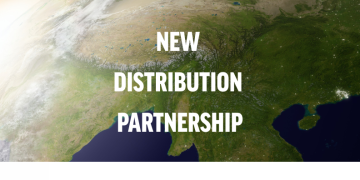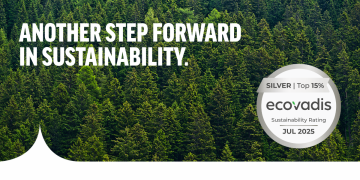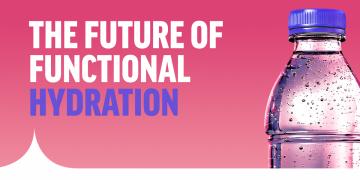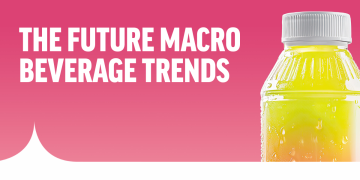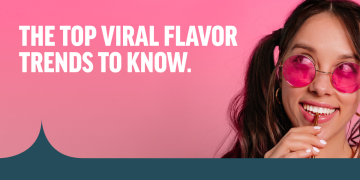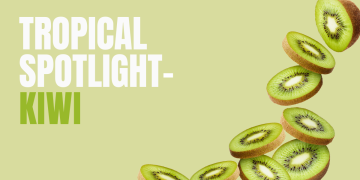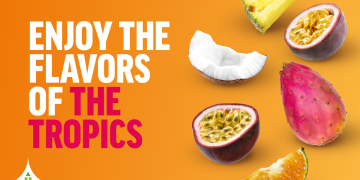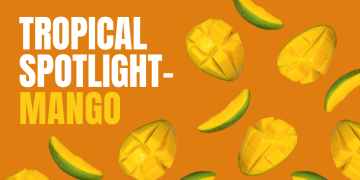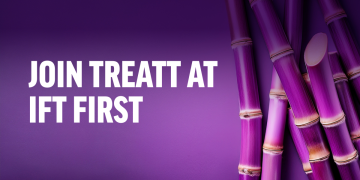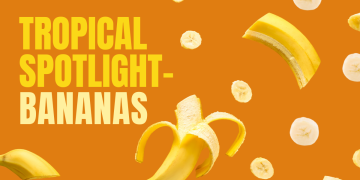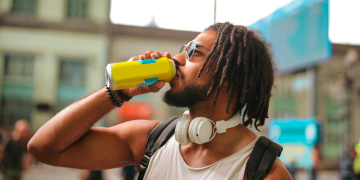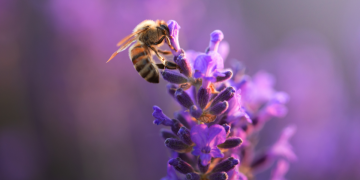Access to this area of the website may be restricted under securities laws or regulations in certain jurisdictions. This notice requires you to confirm certain matters (including that you are not resident in such a jurisdiction), before you may obtain access to the information on this area of the website. These materials are not directed at or to be accessed by persons resident in any jurisdiction where to do so would constitute a violation of the relevant laws or regulations of that jurisdiction or would result in a requirement of Treatt to comply with any consent or other formality which Treatt regards as unduly onerous.
Proposed recommended offer for Treatt PLC (Treatt) by Natara Global Limited (Natara) (the Offer)
Access to the website
You are attempting to enter the part of the website that is designated for the publication of documents and information in connection with the Offer.
If you would like to view this part of the website, please read this notice carefully. This notice applies to all persons who view this part of the website and, depending on where you are located, may affect your rights or responsibilities. Treatt reserves the right to amend or update this notice at any time and you should, therefore, read it in full each time you visit the site. In addition, the contents of this part of the website may be amended at any time, in whole or in part, at the sole discretion of Treatt.
This part of the website contains electronic versions of materials relating to the Offer. The materials you are seeking to access are made available by Treatt in good faith and for information purposes only and are subject to the terms and conditions set out below. Any person seeking to access this part of the website represents and warrants to Treatt that they are doing so for information purposes only.
To allow you to view information about the Offer, you must read this notice and then click "AGREE". If you are unable to agree, you should click "DISAGREE" and you will not be able to view information about the Offer.
Nothing on this part of the website, nor anything which can be downloaded from it, constitutes an offer for sale or subscription or any solicitation for any offer to purchase or subscribe for any securities (or solicitation of any votes attaching to securities which are the subject of the Offer) in any jurisdiction in which such offer or solicitation is unlawful.
The Offer will be made solely by means of a scheme document or offer document which will contain the full terms and conditions of the Offer, including details on how it may be accepted. Any decision made in relation to the Offer should be made solely on the basis of the information provided in any such document.
Overseas jurisdictions
Viewing the materials you are seeking to access may be restricted under securities laws in certain jurisdictions. All persons resident outside of the United Kingdom who wish to view this part of the website must first satisfy themselves that they are not subject to any local requirements which prohibit or restrict them from doing so and should inform themselves about, and observe, any applicable legal or regulatory requirements applicable in their jurisdiction.
These materials are not directed at or accessible by persons resident in any jurisdiction if to do so would constitute a violation of the relevant laws or regulations of that jurisdiction.
You should not download, mail, forward, distribute, send or share the information or documents contained on this part of the website to any person. In particular, you should not mail, forward, distribute or send the information or documents contained therein to any jurisdiction where it would be unlawful to do so. It is your responsibility to satisfy yourself as to the full observance of any laws and regulatory requirements. If you are not permitted to view the information in this website, or viewing the information would result in a breach of the above, or you are in any doubt as to whether you are permitted to view the information, please exit this website. Treatt and its advisers do not assume any responsibility for any violation by any person of these restrictions.
This part of the website contains information that has been prepared for the purposes of complying with English law and the UK Takeover Code and the information disclosed may not be the same as that which would have been disclosed if this information had been prepared in accordance with the laws and regulations of any jurisdiction outside England.
Notice to US Investors
US holders of Treatt shares (US Holders) may vote in respect of the resolutions to be proposed at the meetings to be convened in connection with a scheme of arrangement pursuant to which it is proposed that the Offer may be effected (the Scheme). US Holders should note that the Scheme relates to the shares of a UK company that is a "foreign private issuer" as defined under Rule 3b-4 under the US Exchange Act, is subject to UK disclosure requirements (which are different from those of the United States) and is proposed to be made by means of a scheme of arrangement provided for under English law. A transaction effected by means of a scheme of arrangement for a foreign private issuer is not subject to the proxy solicitation or tender offer rules under the US Exchange Act. Accordingly, the Scheme is subject to the disclosure and procedural requirements, rules and practices applicable in the UK to schemes of arrangement, which differ from the requirements of US proxy solicitation or tender offer rules. Financial information included in the information on this website has been prepared, unless specifically stated otherwise, in accordance with International Financial Reporting Standards and thus may not be comparable to the financial information of United States companies or companies whose financial statements are prepared in accordance with generally accepted accounting principles in the United States. The receipt of cash pursuant to the Scheme by a US Holder as consideration for the transfer of its Treatt shares pursuant to the Scheme may be a taxable transaction for United States federal income tax purposes and under applicable United States state and local, as well as foreign and other, tax laws. Each Treatt shareholder is urged to consult their independent professional adviser immediately regarding the tax consequences of the Scheme applicable to them.
Cautionary Note Regarding Forward-Looking Statements
The materials on this part of the website, including information included or incorporated by reference, may contain certain forward-looking statements with respect to the financial condition, results of operations and business of Natara and/or Treatt. These statements are based on the current expectation of the management of Natara and/or Treatt and are naturally subject to uncertainty and changes in circumstances. These forward-looking statements may be identified by words such as "will", "may", "should", "could", "would", "can", "believes", "intends", "expects", "indicates", "anticipates" or similar words or terms or by discussions of, inter alia, strategies, goals or plans. Forward-looking statements include statements relating to the following: (i) future capital expenditures, expenses, revenues, earnings, synergies, economic performance, indebtedness, financial condition, dividend policy, losses and future prospects; (ii) business and management strategies and the expansion and growth of Natara's or Treatt's operations and potential synergies resulting from the Offer; and (iii) the effects of government regulation on Natara's or Treatt's business.
By their nature, forward-looking statements involve risk and uncertainty because they relate to events and depend on circumstances that may or may not occur in the future. There are several factors which could cause actual results to differ materially from those expressed or implied in forward-looking statements. Among the factors that could cause actual results to differ materially from those described in the forward-looking statements are changes in the global, political, economic, business, competitive, market and regulatory forces, future exchange and interest rates, changes in tax rates and future business combinations or dispositions. Due to such uncertainties, Treatt cannot give any assurance that any forward-looking statement will prove to be correct in the future. Treatt does not undertake any obligation to update or publicly revise forward-looking statements (whether as a result of new information, future events or otherwise), except to the extent required by applicable law or regulation. You are therefore cautioned not to place undue reliance on these forward-looking statements. Unless expressly stated otherwise, no statement contained or referred to in this website is intended to be a profit forecast or profit estimate for any period and no statement should be interpreted to mean that earnings per share will necessarily be greater or lesser than those for the relevant preceding financial periods for the relevant party to the Offer.
Responsibility
In relation to any Offer-related materials accessible on this area of the website please note any statement of responsibility contained therein.
The documents included in this part of the website issued or published by Treatt speak only at the specified date of the relevant document and Treatt has, and accepts, no responsibility or duty to update or revise such documents.
In relation to any such announcements or other Offer-related materials issued or published by Natara, or which relate to Natara and its group, that are accessible on this website, the only responsibility accepted by Treatt and its directors is for the correctness and fairness of its reproduction.
Neither the directors of Treatt, nor Natara nor any of their respective affiliated companies, have reviewed, and no such person is or shall be responsible for or accepts any liability in respect of, any information contained on any other website which may be linked to or from this part of the website.
If you are in any doubt about the contents of this part of the website or the action you should take, you should seek your own financial advice from an independent financial adviser authorised under the Financial Services and Markets Act 2000 or, if you are located outside the United Kingdom, from an appropriately authorised independent financial adviser.
Confirmation of understanding and acceptance
- I have read and understood the notice set out above and I agree to be bound by its terms.
- I am not (nor do I act on behalf of someone who is) resident in any country that renders the accessing of the materials on this website or parts of it illegal.
- I will not print, download, or otherwise seek to copy, mail, forward, distribute or send any of the materials on this part of the website to any other person at any time.
- I represent and warrant to Treatt that I intend to access this part of the website for information purposes only.
If you are not able to give these confirmations, you should click on DISAGREE below.
